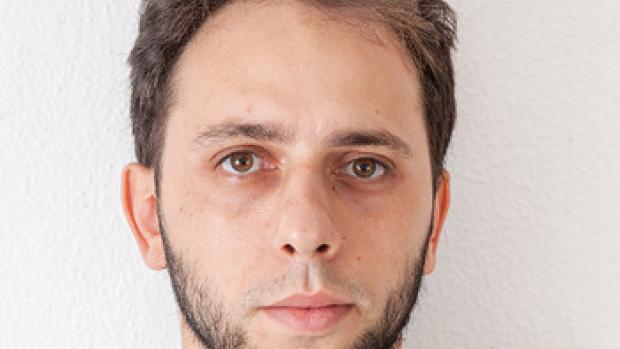Student Co-Authors Research on the Protein Universe

In the August 5, 2014 edition of the Proceedings of the National Academy of Sciences (PNAS), the editors wrote, “Just as the elements in the periodic table can be traced back to the Big Bang, the set of all proteins in terrestrial organisms reflects the history of evolution on Earth. A global view of this so-called protein universe would help reveal how proteins evolve and are related to one another.”
While scientists now know the sequence of millions of proteins--having deciphered which amino acids comprise the proteins, for example, and in what order—their knowledge is far from complete. The structure—the 3D coordinates of every atom of a protein when it is folded in nature—is known for merely 100,000, because decoding the structure of a protein is costlier and more complex than sequencing it.
Sergey Nepomnyachiy, a doctoral candidate in the Department of Computer Science and Engineering, is helping to make strides in that area. Along with computational biologists Nir Ben-Tal and Rachel Kolodny, he is applying network theory to the task. Their PNAS research paper, “Global View of the Protein Universe,” prominently features Nepomnyachiy’s contribution, which included weeks of running massive amounts of data through a cluster of 32 computers.
Drawing from the Structural Classification of Proteins (SCOP) database, the three organized a set of proteins and examined similarities in sequencing and structure among differing network configurations. They demonstrated how networks suggest evolutionary paths between domains and provide clues about the mechanisms of protein evolution.
“There are several schools attempting to map the protein universe, and our paper also discusses ways to present the data in a simpler fashion, to facilitate the study of evolutionary forces shaping the protein universe,” Nepomnyachiy said.
Much of his protein-mapping work for the PNAS paper was accomplished as a master’s degree student at Haifa University in Israel, where his advisor was Kolodny. He previously worked for Intel and IBM, and his main research field currently is low-level optimization of search systems in the field of information retrieval. Nepomnyachiy published two conference papers last year on the topic, and is working on a third, about dynamic index updates. His doctoral advisor is Professor Torsten Suel.
The PNAS paper is available here.




